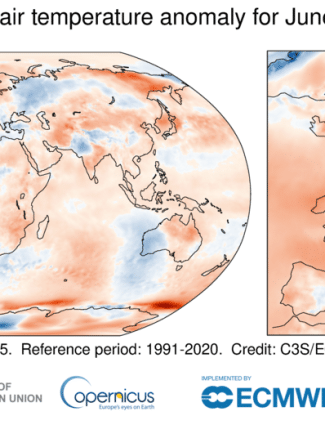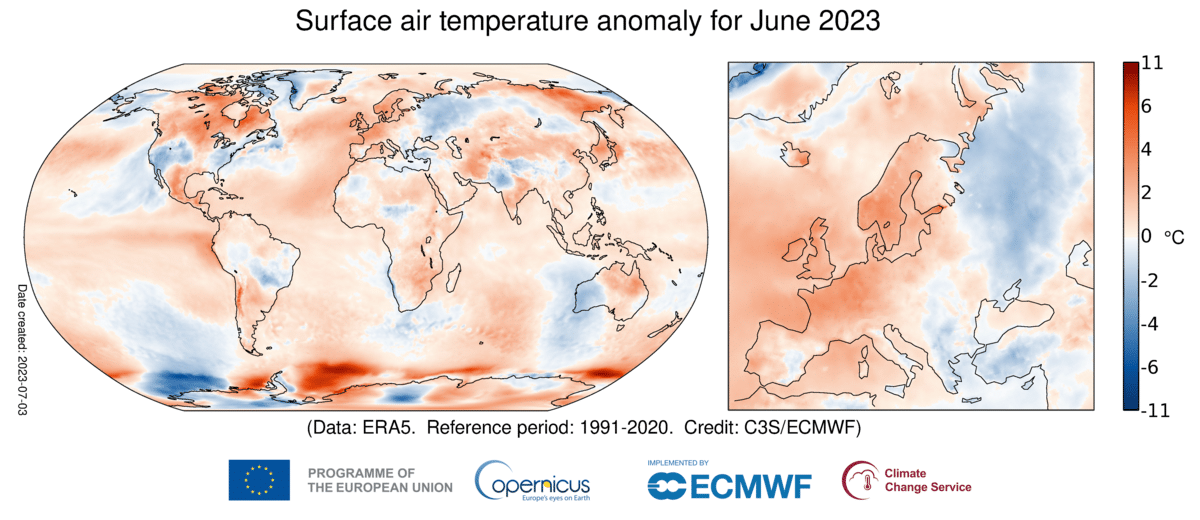
June 2024 Was the Hottest Month Ever!
12th Consecutive Month Above 1.5 Degrees Celsius!
Estimated reading time: 2 minutes, 16 secondsWalking in an outdoor sauna isn’t enjoyable, but I am committed to this daily routine. Today marks the 1,167th day in a row. Despite the weather, it’s an excellent opportunity to chat with neighbors. Today, during a drizzle, I conversed with a neighbor. “It’s so hot,” she said. I mentioned that last month was the hottest in human history, with the 12th consecutive month above 1.5 degrees Celsius. OMG, the glaciers will start melting,” she exclaimed. I responded that they have been melting for decades and should be seen as a message from God to take action. As the rain intensified, we parted ways.
The message from God, or Mother Nature, is as clear as a melting ice cube.
- June 2024 was warmer globally than any previous June in the data record, with an average ERA5 surface air temperature of 16.66°C, 0.67°C above the 1991-2020 average for June, and 0.14°C above the previous high set in June 2023.
- This is the thirteenth consecutive month that has been the warmest in the ERA5 data record for the respective month of the year.
- This marks the 12th consecutive month of global temperatures reaching or exceeding 1.5 degrees Celsius above preindustrial levels, equivalent to 2.7 degrees Fahrenheit.
The 2015 Paris Agreement, a pivotal moment in climate action, aimed to cap global warming at 1.5 degrees Celsius to ensure a sustainable planet. This agreement’s impact is monumental, underscoring the importance of international cooperation in addressing climate change. However, the current trend, with temperatures consistently surpassing 1.5 degrees, is a cause for concern and a call to action. It’s a reminder of the Paris Agreement and working together to ensure that we uphold the spirombat climate change.
“We should consider this the new normal. We need to be preparing for more heat more often. That’s the reality,” said Katherine Idziorek, an assistant professor in geography and community planning at the University of North Carolina at Charlotte. If this is the new normal, we are paying the price for delaying action for decades. “We’ve known for decades that the world is warming. When these naturally occurring heat waves happen, they’re boosted by those steroids of climate change,” said Alexander Gershunov, a research meteorologist at the Scripps Institution of Oceanography at the University of California, San Diego.
Thinking of heat waves on steroids should instill a sense of urgency, even in the most ardent climate deniers. We are at a tipping point: either we act to address the climate crisis or expand our reliance on fossil fuels. The only sustainable choice is to shift away from fossil fuels and towards renewable energy sources. This is not just a choice but a necessity for survival. The question is not ‘if’ but ‘when’ we will take action on the climate emergency.









